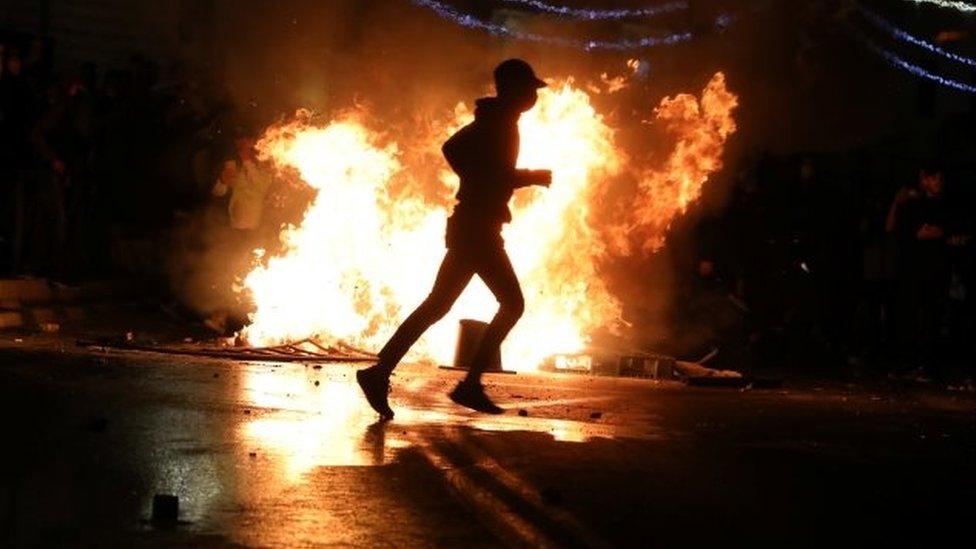Jerusalem protests: Netanyahu defends Israeli action after clashes with Palestinians
- Published
Clashes in Jerusalem have continued for two nights in a row
Israeli Prime Minister Benjamin Netanyahu has defended police action against Palestinian protesters after two nights of clashes in Jerusalem.
He said Israel "shall not allow any radical element to undermine the calm" in the city amid growing concerns over the spiralling violence.
The US, the EU, Russia and the UN on Saturday all expressed alarm.
The clashes follow a month of tensions, with the threatened eviction of Palestinian families a focal point.
The latest came on the eve of an expected hearing in the Israeli Supreme Court of the years-long case of the families, comprising more than 70 people, appealing against an eviction order in favour of a Jewish settler organisation in East Jerusalem's Sheikh Jarrah district.
But the hearing was cancelled on Sunday following a request from Israel's attorney-general. A new date will be set in the next 30 days.
Meanwhile, there are growing concerns that the annual Jerusalem Day Flag March - which traditionally sees thousands of Zionist youth march through the Muslim Quarter of East Jerusalem's Old City - could lead to more violence.
A former high-ranking defence official, Amos Gilad, called for the march to be cancelled or re-routed, warning Army Radio: "The powder keg is burning and can explode at any time."
'Violence generates violence'
The two nights of clashes took place around Jerusalem's Al-Aqsa Mosque complex, a frequent flashpoint for violence. It is one of Islam's most revered sites, but its location is also the holiest site in Judaism, known as the Temple Mount.
Saturday's violence began after tens of thousands of worshippers had prayed at the compound on Laylat al-Qadr, the most holy night in the Muslim month of Ramadan.
Protesters hurled stones at police at the Damascus Gate entrance to the Old City, and officers responded with stun grenades, rubber bullets and water cannon.
Almost 100 were injured, according to Palestinian medics.
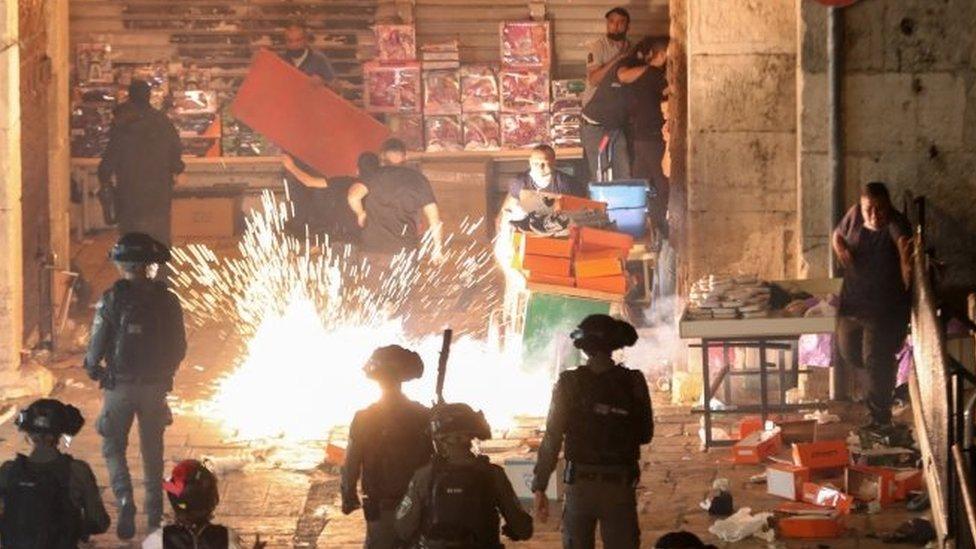
Israeli police fired stun grenades at Palestinians, as protesters threw stones, lit fires and tore down police barricades
The night before saw some of the worst clashes in the city in years, with more than 200 Palestinians and at least 17 Israeli police were wounded in skirmishes near the mosque, emergency workers and police said.
A number of international voices have expressed concern over what was happening in East Jerusalem, including The Quartet of Middle East negotiators - the US, the EU, Russia and the UN.
"Violence only generates violence. Let's stop these clashes," Pope Francis said to the crowds in St Peter's Square, calling on all sides to respect Jerusalem for its multicultural identity.
Neighbouring Jordan, custodian of Muslim holy sites in East Jerusalem, has condemned the actions of Israeli security forces in and around the mosque as "barbaric". Egypt, Turkey, Tunisia, Pakistan and Qatar - as well as Bahrain and the United Arab Emirates, which normalised relations with Israel last year - have all also sharply criticised Israel.
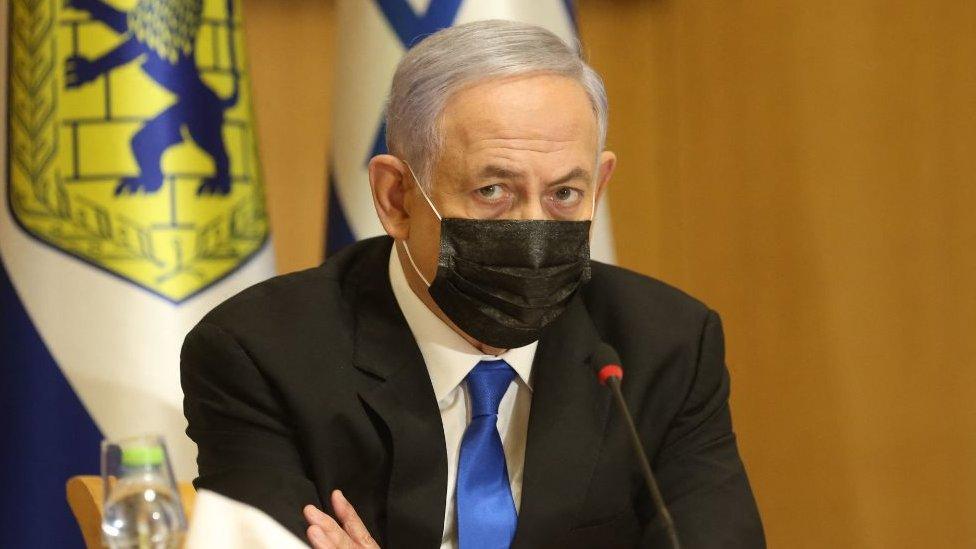
But in a televised address to mark his country's capture of East Jerusalem in the 1967 Middle East war, Mr Netanyahu defended Israeli police - as well as his government's decision to build Jewish settlements.
"We firmly reject the pressure not to build in Jerusalem. To my regret, this pressure has been increasing of late," he said.
What is fuelling the violence?
Tensions have escalated in East Jerusalem since the start of the holy Muslim month of Ramadan in mid-April, with a series of events driving the unrest.
As Ramadan began, clashes erupted nightly between police and Palestinians protesting against security barriers outside Damascus Gate which had prevented them from gathering there during the evening. Palestinian anger was further exacerbated by a march by ultra-nationalist Jewish extremists close to the same area held in protest at a spate of videos posted on social media showing Palestinians assaulting ultra-Orthodox Jews in the city, and by revenge assaults on Palestinians by Jewish extremists.
Amid an already febrile atmosphere, Palestinians have been rallying round the cause of four Palestinian families facing eviction in Sheikh Jarrah after Israeli courts ruled the land belonged to a Jewish settler organisation in a long-running and bitter legal case.
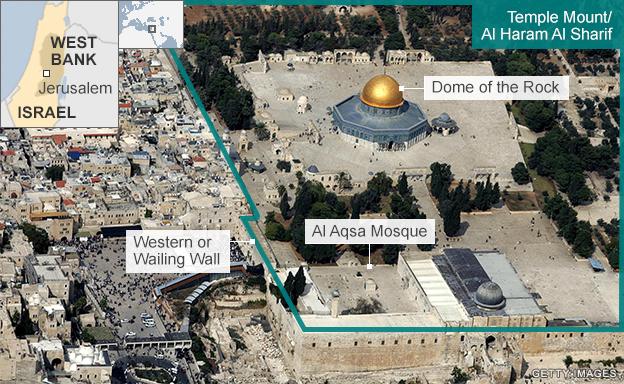
Israel's Supreme Court was due to hear the appeal of the families, who could be forcibly removed from the properties, a prospect which has caused an international outcry. The district had seen nightly violence between police and Palestinians ahead of the expected decision. Palestinian militant groups have warned of retaliation if the families are forced out.
The fate of East Jerusalem goes to the heart of the Israel-Palestinian conflict, with both sides claiming the right to it. Israel effectively annexed East Jerusalem in 1980, in a move not recognised by the vast majority of the international community, and considers the entire city its capital.
Palestinians claim East Jerusalem as the future capital of a hoped-for independent state.
Related topics
- Published9 May 2021
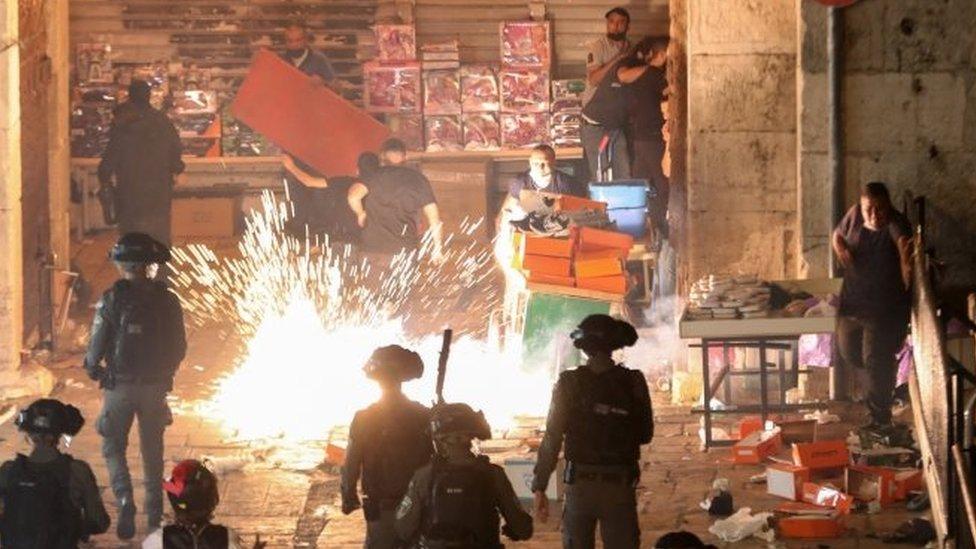
- Published8 May 2021
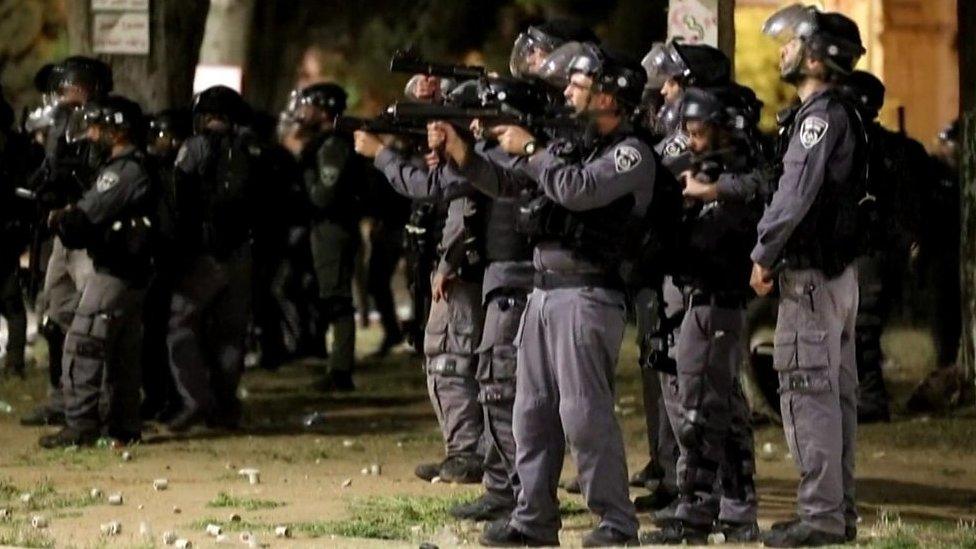
- Published23 April 2021
